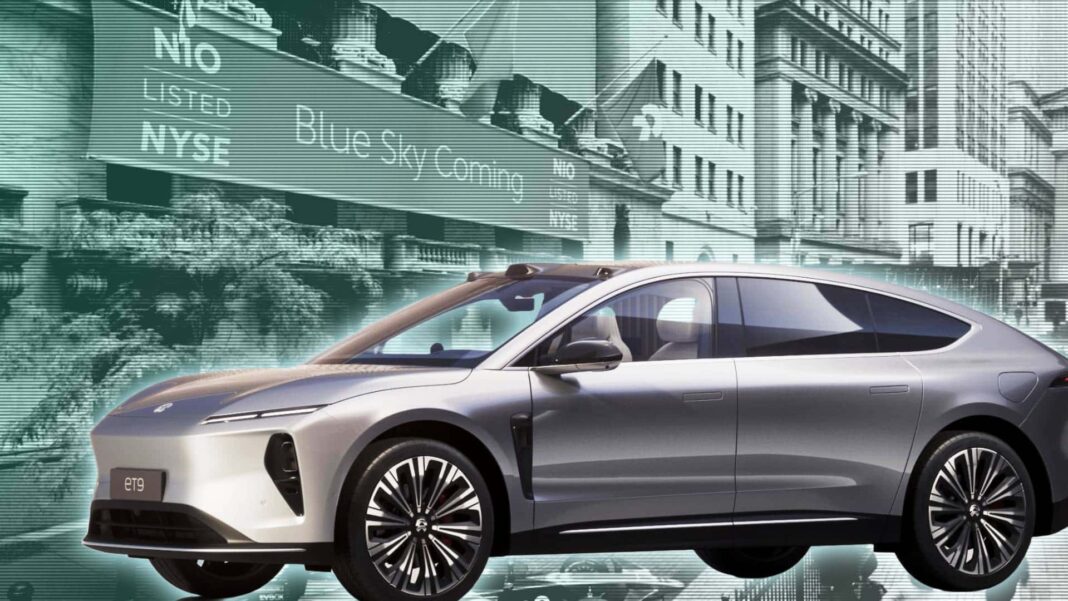- Chinese brand Nio, has had an office in San Jose since 2015.
- The brand originally wanted to enter the U.S. by 2025, but it has backtracked in recent weeks.
- Last year, Nio sold 160,038 vehicles.
Political pundits may denounce the presence of Chinese electric vehicles on American roads, but the fact is that they’ve already kind of been here, quietly running in the background for more than a little while now. I’m talking more substantially than say, Ford’s CEO driving a Xiaomi SU7 around the Chicagoland area, or the handful of Mexican tourists driving around South Texas their Baojuns that have been rebadged as Chevrolet products.
No, these brands have been in the U.S. in an official capacity, with offices and employees. BYD has a Pasadena, California office; it’s the place where you’ve likely seen your favorite YouTubers and TikTokers pawing through a handful of its China-only models it’s imported over for business duties. The Chinese giant has quietly moved metal in the U.S. before, like a fleet-only version of its e6 EV crossover. It’s been building and selling electric buses in the U.S. for more than a decade now. Given how much of the globe’s tech comes out of the United States, it’s kind of a no-brainer that tech-heavy Chinese EV brands would have some sort of presence here, especially in Silicon Valley.
That includes Nio, who was the subject of my most recent trip to China. The brand has had a San Jose office since at least 2015 with an on-again, off-again plan to actually sell cars in the United States.

When you look at Nio’s lineup in China and Europe, it seems like a no-brainer. They feel like the kinds of electric cars we’d want to buy. Nio’s product line has more than doubled from three different models in 2018 to eight in 2024 (including a new more modestly-priced mainstream sub-brand called Onvo), with plans to launch an even cheaper mainstream brand by the end of this year.

As of right now, Nio and Onvo have a range of crossovers and sedans meant to attract buyers of both mainstream and luxury EV buyers. And its signature battery-swapping technology seems like a surefire way to ease the range and charging anxiety that keeps many people from going electric.
These moves seem to have paid off. The company has grown, from about 8,000 units moved in its first year of 2018, to 190,000 units and counting for 2024. Why not grow into America next?

2023 Nio EL6 exterior front three-quarter view driving
But a world of EV development and huge geopolitical shifts have happened since Nio first opened that California office Sure, the U.S. market is arguably more ready than ever for another EV player, and Nio’s product line could be just what we’re looking for. But that’s all underscored by the fact that U.S.-China relations are at an all-time low, and just might get worse. Given the recent antagonism and shifting tide against China, are they even considering a U.S. launch anymore?
Despite it all, the answer is a definite maybe. Nio hasn’t quite counted the United States off its to-do list, but they were very clear: it probably won’t be for a while.
Like other Chinese EV manufacturers, Nio’s desire for growth, both inside and outside of China, is crucial to its survival. Thus, the brand has taken steps to grow its numbers in part by introducing new models.

Photo by: InsideEVs
But, it’s got to keep growing. Nio says that it will continue to push through Europe and other parts of Asia. “Nio will firmly explore the global markets, aiming to enter 25 countries and regions by the end of 2025, meet local user needs in different markets with its three brands and price segments, and adopt a global market strategy tailored to local conditions,” a Nio representative said in an email when asked about the brand’s future expansion plans. Ambitious, but expansion isn’t easy. Neither are the geopolitics that must be navigated or the questions surrounding sales, service, marketing and more.
Curiously, Nio also said that “[Nio] will continue to steadily implement its globalization strategy, work with partners to help facilitate technological innovation in the global smart electric vehicle industry, and provide innovative technologies, products, and services to users in more countries and regions.” The standout word in that sentence is partners.

Let’s look at its most recent market that it’s entered: Azerbaijan. Instead of entering that market itself feet first, it partnered with a distributor called Green Car to manage its sales, service, battery swap stations, and customer lounge centers, called Nio Houses. This steps around its original direct-to-consumer sales model, allowing a third party to run and manage things The partnership with Green Car is considered the start of Nio’s new strategy of entering international markets.
Nio isn’t the only brand that’s looked to outside partners to expand outside of China. Famously, Leapmotor has partnered with Stellantis as a method of entering European markets easier. The EU has recently floated the idea of a sort of reverse joint-venture relationship, where Chinese automakers partner with European ones to circumvent any import tariffs associated with Chinese EV imports.
So, what does that mean for us? Could Nio be pointing toward moving towards a partnership to enter the U.S.? Nio’s representatives sent over this statement: “The United States is one of the largest car markets in the world, and major automotive manufacturers have a strong presence there. NIO has established the team in the U.S. since the beginning of the company and has been evaluating the optimal time and strategy for its entry to the U.S. market.”
It’s not clear what form a U.S. Nio launch would take, but these are interesting statements from an interesting company, during a very interesting time in both the EV revolution and the U.S.-China relationship.
Contact the author: [email protected]

